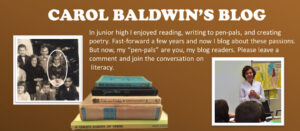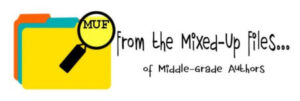The whole kidlit world was shocked to find that after several years at Kane Press, Harold Underdown was let go and the entire press went out of business. If you hadn’t heard the details, here’s what Harold shared on Facebook.
Harold’s one of the Good Ones in the biz, folks. Read the OPB interview I did with him in 2021 to see for yourself!
To show my support of my colleague and friend, I’m repurposing this month’s Industry Insider post to showcase some of the wisdom Harold’s shared over the years via articles, interviews, workshops, and more.
Enjoy it, and please send Harold your best wishes (and leads for editorial jobs at places that aren’t going to self-destruct).
- Harold’s “Purple Crayon” Website
- Harold on Goodreads
- Harold @ Highlights Foundation
- Harold on Instagram
- Harold on LinkedIn
- Harold on Twitter/X
**Note on the excerpts below. A few had grammatical issues/typos, and one even seemed to be an unedited AI transcript, so I tweaked the spelling and grammar a few times to ensure readability, though I didn’t add or replace any words.**
What are some of the essential qualities of a good editor?
To start with, you must love reading, because you’ll be doing huge amounts of it, both of manuscripts and published books, from the day you enter the field.
You must care about and be interested in books, publishing, children, schools, libraries, and all the other things you will deal with on a daily basis, and you must be open to learning more about them.
Above all, I think you need to love to work with people in the particular ways an editor does: to get inside what an author is trying to do in a manuscript, and to help them to do it better; to know who is the right illustrator for a given book, and to help them do their best work; to work every day with a team of people brought together to produce a book; and of course to advocate for and help a book within a publishing company and out in the world. We don’t just sit in our offices marking up manuscripts with red pencils!

Children’s publishing is in an interesting era right now, isn’t it? Why is it important–now more than ever–to have a foundational understanding of this industry before you start preparing and submitting?
So, there’s a few parts to that question and let me unpack that. From my experience–and I’ve been working in publishing for more than 30 years now–it has ALWAYS been important to know how the business works. And that begins with everything from the different kinds of children’s books. A lot of people come into this with only a vague idea about the complexity of the different areas of children’s books and how they connect to children.
But that’s just the start. You need to understand the process of writing from a practical point of view. Like how to get feedback, not just sitting down and writing at your computer and knowing when you’re ready to send a manuscript out. The process of doing that; what happens later? What happens if a publisher or an agent is interested and what happens eventually when you get to the point of being offered a contract? And then beyond that. How are you going to actually be working with a publisher? That’s always been really important knowledge that often is kept out of the conversation, but the focus is very much a lot of the time in our business on the writing and on the illustrating and you really have to put both of them together and that’s what I’m always aiming to do.

How do you approach submissions as an editor? What makes you stop reading?
I’ll answer your question as if I were working in-house, since that’s what your readers probably want to hear. I always approached submissions with tremendous hope, that the NEXT manuscript I read was going to grab me and not let me go. And, over the years, like all editors do, I did find manuscripts from people I didn’t know that surprised and excited me. That’s a wonderful moment, when it happens.
Of course, most manuscripts in the “slush pile” don’t do that, for one of a number of reasons. I can group them into two categories, I think—there are the books that are obviously wrong for my publisher, either because they don’t publish that particular type of book or because they just did publish something too much like it.
The larger category is the second one, and that’s the one in which I would put various kinds of work that just isn’t good enough. There is uninspired and pedestrian writing, the too-familiar story, talking animals that teach lessons, “clever” writing that impresses adults but bores children, stilted or clumsy sentences, a slew of bad grammar and spelling (I don’t mind a few mistakes if the story is strong). You can get some more examples of what makes me stop reading in my article “Getting Out of the Slush Pile.”
What do you do outside of the book world?
I try to make sure my family is happy. We have a child in kindergarten, who over the past several months has learned to read, mostly on her own initiative. I stay involved with that. It’s satisfying and challenging and nothing at all like any job I’ve ever had.
In case you’re wondering, being a father hasn’t changed how I approach my work as an editor. I’ve greatly enjoyed discovering books I didn’t know about, though, and re-discovering favorites from my childhood. The Editor as Reader, which I mentioned earlier, goes into some of the discoveries.

How much should a writer pay attention to a manuscript’s “marketability” and market trends?
This is a short question but it needs a long answer. For one thing, the importance of what’s expected in the market varies by type of book. A manuscript written for a packager creating a MG series MUST be focused on what the market wants, while a “literary” novel should simply be the best that the writer can make it.
In general, paying too much attention to the market is dangerous, as trends can change or die overnight. It can also be difficult to figure out what exactly would make a manuscript “marketable.”
So, my advice for writers in this area is to ignore the trends while they are learning the craft–improving their skills, finding their voice, learning what they most like to write. Once they have a good chunk of experience under their belts they can start to pay more attention to the market, as they will not be unduly influenced by it.

What are the advantages of working with an independent editor?
I don’t know if I’m the right person to ask–you should ask some of my clients! But from what people tell me, there is one reason why many of them work with an independent editor. They have gone as far as they can with the avenues that they have for getting feedback on a manuscript, whether that’s their critique group, a writer friend, conference critiques, or all of those, and they know that they haven’t yet reached the place where they want to be. And so they reach out for help from a professional editor. Their manuscripts are in many different stages–ranging from early drafts with significant flaws to oft-revised drafts that need a final polish. What they have in common, though, is that they need or want to get help to move it up another level.
From the Mixed-Up Files…of Middle-Grade Authors

In speaking with so many industry folks over the years, it seems to me that the picture book world does a very good job letting new agents and editors learn in an apprenticeship model. Was that how it worked for you?
That’s an interesting question. And I actually would say that I didn’t have a full on apprenticeship kind of situation. Because I was working for Macmillan Children’s Books–a large, general purpose children’s book imprint–we did everything from picture books up to young adult. We even had the Macmillan Dictionary for Children along with a couple of other reference books.
There were three or four editors within the imprint–Judith Whipple, Beverly Reingold, and my boss Neal Porter, who was the publisher. I was officially working for Neal, but I also interacted with everybody else, so I was actually learning from all of them. One of the things they did within the department was make copies of all their important correspondence and put it in a file. That would get circulated weekly so we could all see what everybody was working on. That was always really interesting for me to read, because I could see how an editor wrote an editorial letter and how they corresponded with an artist. Another lesson I learned was the reality that publishing is a business.
That’s a tough realization, isn’t it?
I thought of publishing as this noble calling where people are simply making wonderful books. And it is! But also, for every single book that we acquired, I had to do a P&L [profit and loss statement]. And it had to work out and make money for us, after I put in all the expenditures and an overhead percentage and so on. It had to hit a target number of profit.





In my experience, for what it’s worth, editors have provided outstanding professional experiences for me–despite my roller coaster ride in publishing. I sense you’ll rise from what must feel like landing in your own version of the slush pile. You will.
Very best wishes to Harold, who I first ‘met’ on the SCBWI Discussion Boards (nicknamed ‘The Blueboards’) some time ago. Harold is always generous and kind in sharing his experience and advice with others, regardless of how far along they are on their writing journey. His knowledge is vast, and any publisher will be lucky to have him.